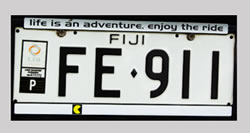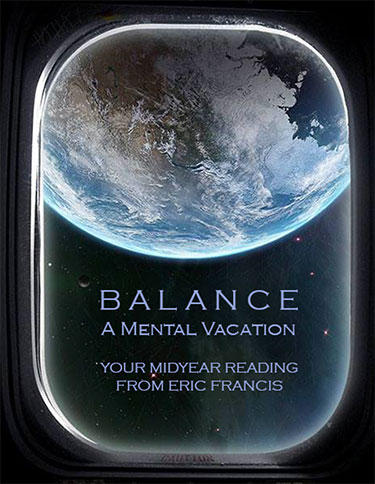Last Thursday at the Democratic National Convention (DNC), there was Hillary Clinton’s acceptance speech, and then there was The Speech. You know which one I’m talking about.

Before last Thursday, there were probably many who believed the ‘the personal is political’ is something great in theory, but rare in practice. Then again, before last Thursday we didn’t listen to, watch or stream Khizr Khan’s speech in front of the delegates at the DNC in Philadelphia.
In a matter of seven minutes, the late Captain Humayoun Khan’s father slowly and deliberately delivered a speech written from a personal well of grief no one outside of the community of Gold Star parents — those who’ve lost loved ones in battle — could imagine. He did it before 5,000 delegates and, ultimately, the rest of the world.
Taking a Constitution out of his pocket and asking if Donald Trump had even read it, he drove a wooden stake into the vampiric heart of Trump’s unendingly frenetic and cowardly Twitter feed, and into the candidate himself. Khan reclaimed American ideals of patriotism and sacrifice not belonging to one race, culture or religion. He shoved Trump’s concept of anti-Muslim American exceptionalism right back into Trump’s face.
Being a Twitter watcher this campaign, it was remarkable to see the ‘radio silence’ from @realDonaldTrump on the Friday after the DNC. It was as if his own handlers had to lock up his cell phone and shut down his Twitter account that day for fear the candidate would damage himself further by attacking Khan’s parents. Or more likely, the Trump campaign had to come up with a way to respond to The Speech without sounding like a bunch of heartless, bigoted, right-wing, xenophobic, anti-patriotic Christo-Fascists.
You have no idea how much fun it is to write that last sentence.
Fun, because Khizr Khan’s words could have been spoken by my father, who became a citizen in Hawaii when it became the 50th state, or by my mother who at the age of 76 became a citizen in 1995, a few months after California passed Proposition 187 — a ballot initiative to establish a state-run citizenship screening system and prohibit illegal aliens from using non-emergency health care, public education and other services in the State of California.
Fun, because my sister and I were born here, but until 1995 my mother was a legal alien. She registered annually by sending in her alien registry card at the post office every year of my childhood. I remember holding her hand as she dropped that card into the brass-colored post office box slot — feeling a child’s sense of relief from the words of re-assurance she uttered — that she could stay here in this country with us for another year.
She was half-joking at the time. She was fine, being married to an American citizen. Yet, we felt doubly re-assured by our mom’s own sense of relief doing her civic duty as a registered alien. The thought of being separated from my mom was something I had to constantly suppress as a child. Those thoughts came in waves of panic from a terrible fantasy that only a child in fear of being separated from a parent could have. We lived in an America that had not placed immigrants on their national radar as political bait. Not yet. That came later.
The lives of immigrants living in America — no matter what their status — is a mixture of a fierce desire to belong, a sense of shame for being different, and the terror of being excluded, isolated and persecuted. And that’s while there’s no anti-immigrant sentiment wafting about the national political discourse. Now imagine what it’s like when there is.

Our exciting new 12-sign Midyear Reading on forthcoming astrology, including Jupiter in Libra (plus much more!) is available for pre-order. Get all 12 signs here for $57.
To witness a bigoted, vain, bullying millionaire get his comeuppance from a Pakistani-American, Bronze Star soldier’s parents was so deeply satisfying I found myself watching Khizr Khan’s speech again and again. It was medicine. Medicine for the sickness of xenophobia and bigotry we’ve been experiencing here this election year — and each day of every year since Sept. 11, when we not only lost 3,000 people, we lost our way.
This weekend, I could not be out and about to socialize. There were feelings I was processing after the convention — as you can see — about my own history and my own struggle here as a child of immigrant parents. That’s how hard and how deeply I felt the speech.
It had me question and re-affirm the value of my own otherness and all the experiences I have had from childhood until now in this country. It also raised my alertness level on what is happening to children now who, like me 60 years ago, are now ‘others’ in this new, strange land.
Yesterday I read an article by the Southern Poverty Law Center that details the impact of this year’s presidential campaign on children. It is summarized as this: “Our report found that the campaign is producing an alarming level of fear and anxiety among children of color and inflaming racial and ethnic tensions in the classroom. Many students worry about being deported.”
There are moments described in the report that recall so many of my own, which I won’t recount here. But no child should have to suffer them. Not here or in any country.
Which brings me back to The Speech. We don’t often experience moments in history that throttle the nexus of racism and bigotry that permeates this country’s history, let alone this year’s presidential campaign — Martin Luther King Jr., John and Robert Kennedy the exceptions — at least, they’re not experienced by everyday folks like you and me. Yet, so simply, movingly and powerfully the speech said what we Others have been saying all along. And said it on a bright and vivid media canvass that few have penetrated, no less: a national political convention.
There are no pats on the back necessary for the Khans. They were compelled to speak out of civic duty, pride in their country and grief for their son. The rest of this country — and people anywhere else in the world where xenophobia grips our communities with fear of others — needs to look up to them and re-evaluate closely, asking: Where was the place we lost our souls? By providing first-hand witness to the reality of sacrifice for love of country, the Khans point their fingers at the place we need remember to go.

